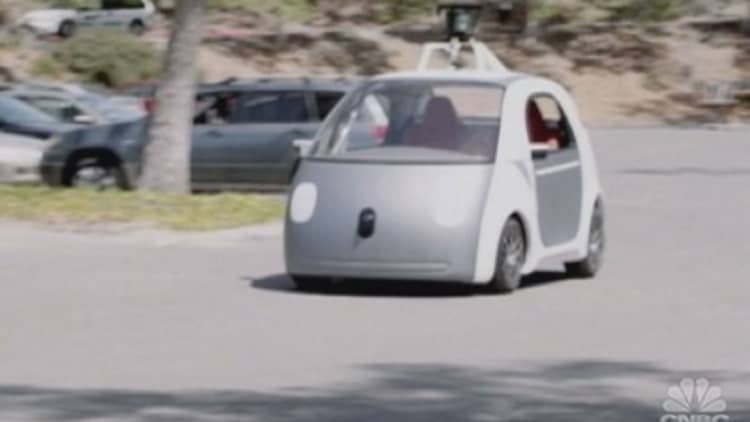As autonomous cars edge closer to reality, a new survey found the majority of Americans are ready to hand over control to self-driving vehicles—so long as they're able to maintain a bit of control.
According to a new study by comparison-shopping website Insurance.com, three-quarters of licensed U.S. motorists would be very likely to consider, if not buy, self-driving vehicles. If they were offered lower insurance rates, that figure jumps to 86 percent.
"People are aware that they already drive cars controlled partly by computers," said Des Toups, managing editor at Insurance.com.
Still, respondents expressed a bit of skepticism about the technology. Nearly 60 percent of the 2,000 licensed drivers surveyed said they didn't believe an autonomous vehicle's computer system could match the decision-making of a human driver. Seventy-five percent said they'd be hesitant to allow a fully driverless car take their children to school.
More from The Detroit Bureau:
The safest cars for your teen driver
Autonomous vehicles may soon rule the road
Convertible owners more affluent, better educated
The results echo those found in a study earlier this month by AutoPacific Inc. The consulting firm found that motorists are eager to add many of the new safety features that will ultimately come together in an autonomous vehicle, such as forward collision warning with automatic braking, but continue to hesitate when it comes to completely giving up control.
There's growing pressure to add autonomous technologies to vehicles, particularly at the government level, as self-driving systems are seen as the best way to reduce highway crashes. Some carmakers, including Volvo and Nissan, have set goals of achieving zero fatalities in the not-too-distant future.

Nissan has already set a goal of launching production of its first fully autonomous vehicle by 2020. Earlier this month, CEO Carlos Ghosn said the automaker will add a number of near-autonomous features to its vehicles by 2016.
Read MoreNissan ramps up push into self-driving vehicles
Most manufacturers continue to emphasize either semi-autonomous driving, or allow the driver to take control if there's a technical glitch. But tech giant Google plans to roll out prototype vehicles that won't have a steering wheel or pedals, only an emergency shut-off button.
—By CNBC Contributor Paul A. Eisenstein. Follow him on Twitter @DetroitBureau or at thedetroitbureau.com.

